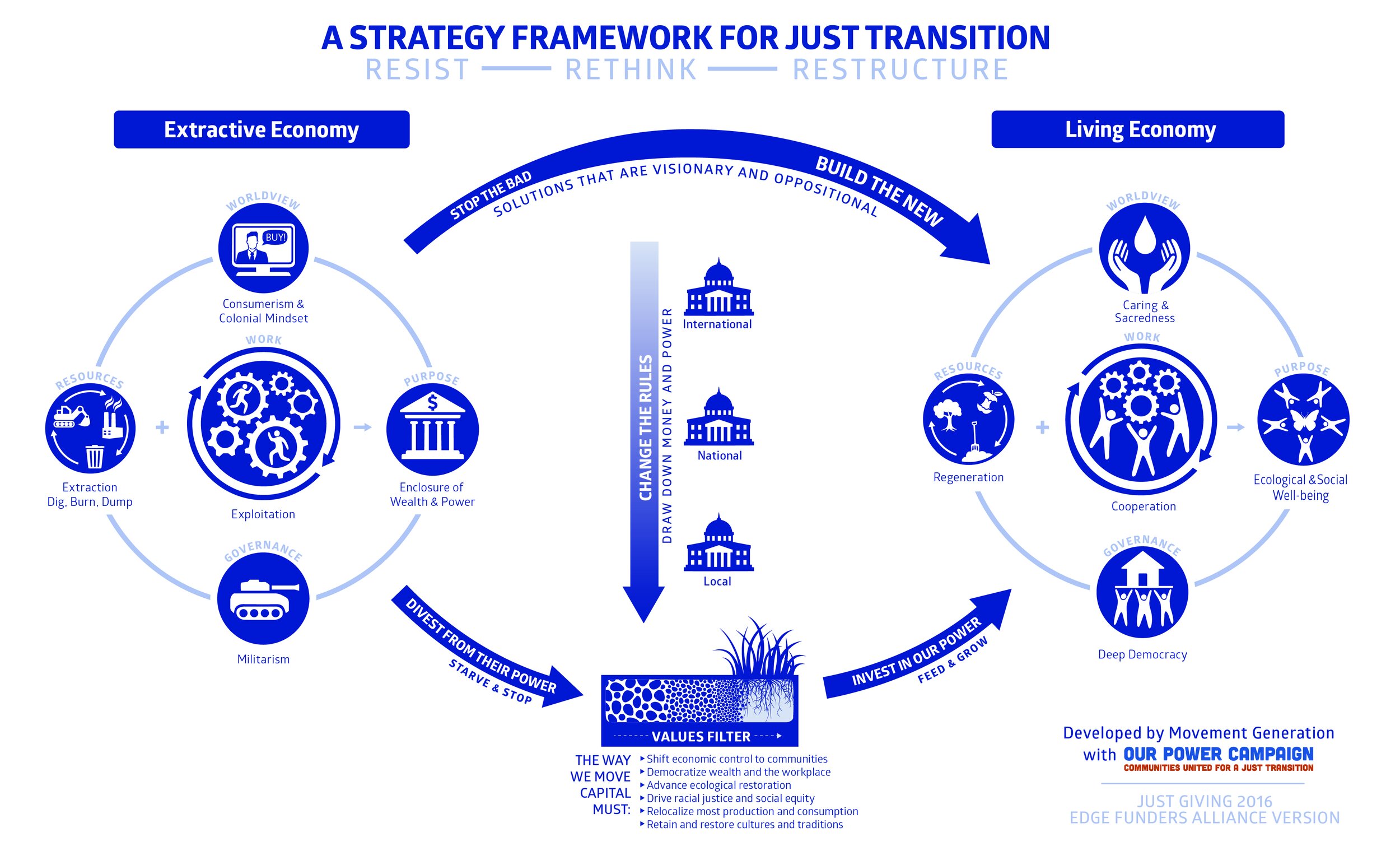Principles of a Just Transition
While Oregon Just Transition Alliance looks to the Principles of Environmental Justice and Jemez Principles for Democratic Organizing, our work is also guided by the following principles.
Developed by Movement Generation with Our Power Campaign.
Our Core Principles
A Just Transition Is led by frontline communities
We believe in self-determination for communities feeling the impacts of global ecological, economic, and imperialistic crises. Our communities must lead and define a plan to move to an economy that works for all. Our communities must lead any efforts to address these global crises.
A Just Transition creates buen vivir - “living well”
Living well is a vision and platform for practicing alternative futures. It means being community-centric, ecologically balanced, and culturally sensitive. We live in an economy that is extractive and exploitative. Buen vivir recognizes that frontline communities around the world have the right to clean, healthy and adequate air, water, land, food, education, and shelter. A just transition creates buen vivir, where community and nature are in harmony.
A Just Transition shifts power and resources
A Just Transition must break the current structures of power and share the power democratically. The new economy needs to be about sustainable resources. We need people to participate in the decisions that are governing their lives. We need to restructure ownership of resources, so that people have local and more democratic ownership. The more people who have access to opportunities and who are able to thrive, a new regenerative economy will be created.
A Just Transition must have regenerative ecological effects
A Just Transition must stop the extraction of finite natural resources, exploitation of labor, and dismissal of cultures and traditions. A Just Transition must advance ecological resilience and restoration. We must build rather than destroy. This will require a re-location and democratization of production and consumption by engaging our resources at a scale of production that is aligned with living systems.
A Just Transition embodies local, regional, national and international solidarity
There must be bold investment in the resilience of cities, counties, states, tribes, and communities that are targets of the extractive and exploitative economy. There must be connectedness and mutual understanding among these communities in order to be transformative. Our crises transcend all boundaries and borders. So must our solutions.
A Just Transition centers community resilience and collaboration
People of color, low-income and rural and tribal communities have been at the front line of environmental and climate injustice for centuries. Our resilience comes from years of history. Forming the new economy will require building existing and new relationships that nurture the leadership of each individual.
A Just Transition is self-determination
Every individual has rights. These rights are inherent and cannot be taken away. Individuals have the right to the resources required to lead a productive, dignified, equitable, and sustainable life. The fundamental right to political, economic, cultural and environmental self determination for all people leads to less extractive systems.
A Just Transition builds the new
In order to build new processes, we must envision what can be possible. We must organize ourselves to be bold, visionary, and oppositional to systems that extract resources and exploit the work of individuals.
A Just Transition must preserve ancestral wisdom and culture
Our biological and cultural diversity is collapsing. We must remember that knowledge is derived from our ancestral connections, to soil and water. A Just Transition must create space for the intersectionality, complexity, and fluidity of our communities in order to work collectively for a just economy and the liberation of all living beings.

